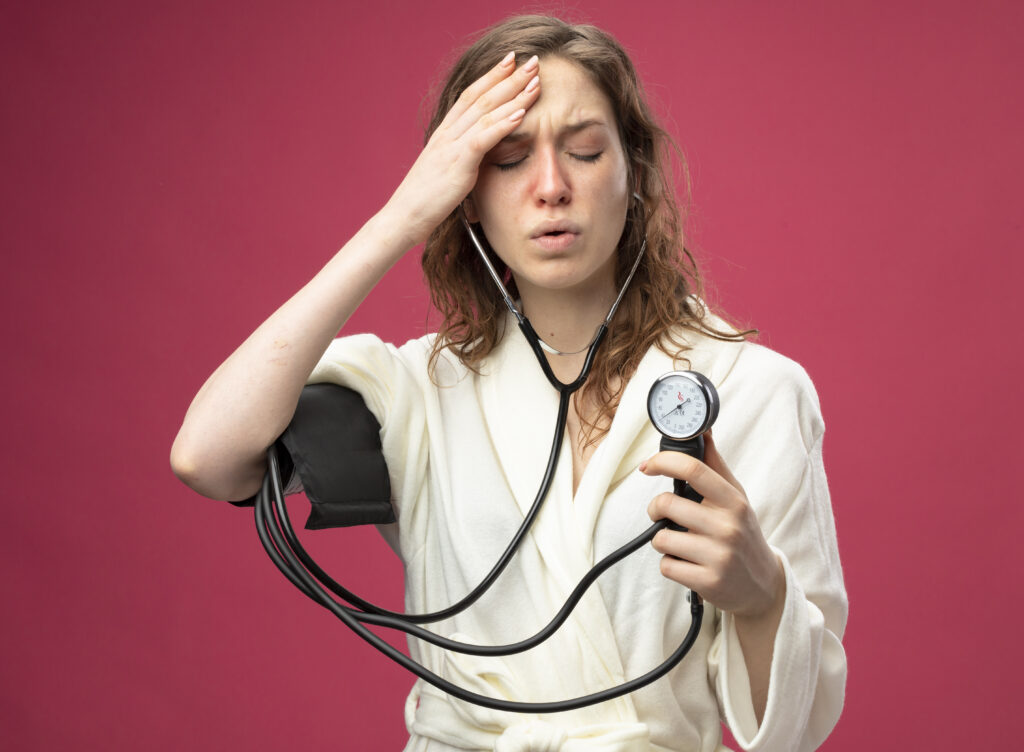Last updated on May 12th, 2025 at 06:06 pm
Introduction to High Blood Pressure
What exactly is blood pressure? When the heart pumps blood, the blood exerts a force against the artery walls. You have high blood pressure when the force of blood against the walls of your blood vessels is considerably strong. Hypertension is the medical term for High blood pressure.
Studies show that about 200 million people in India have hypertension, yet only 12% of people have their blood pressure under control. Needless to say, persistently high blood pressure can be damaging to the heart and other vital organs.
Understanding the reasons for high blood pressure may help you maintain normal blood pressure levels and live a healthy lifestyle.
Understanding blood pressure
Here are some key pointers for you to better understand what
- A normal blood pressure reading is typically less than 120/80 mmHg.
- Hypertension is diagnosed when your blood pressure consistently measures 140/90 mmHg or higher.
- Secondary hypertension is high blood pressure caused by an underlying medical condition or medication. Complications like kidney problems, adrenal gland tumors, sleep apnea, obesity, and some medications can lead to secondary hypertension.
Causes of high blood pressure
Some common causes of sudden high blood pressure include:
- Stress: Physical or emotional stress can cause a temporary increase in blood pressure.
- Caffeine: Consuming caffeine, such as coffee or tea, can temporarily increase blood pressure.
- Alcohol: Drinking alcohol can also cause a temporary increase in blood pressure.
- Tobacco use: Nicotine, the active ingredient in tobacco, can cause a temporary increase in blood pressure.
- Certain medications: Some medications, such as decongestants, can raise blood pressure.
- Illnesses: Certain illnesses, such as pneumonia, kidney disease, or adrenal gland tumors, can cause sudden increases in blood pressure.
- Hormonal changes: Hormonal changes during pregnancy, menopause, or thyroid problems can cause sudden increases in blood pressure.
Symptoms of high blood pressure
Here are some common symptoms of high blood pressure:
- Headaches
- Dizziness or lightheadedness
- Nausea or vomiting
- Shortness of breath
- Chest pain or discomfort
- Visual disturbances, such as blurred vision
- Ringing in the ears (tinnitus)
- Fatigue or confusion
- Nosebleeds
- Flushing of the face
Complications of sudden high blood pressure
If left untreated, high blood pressure can lead to serious health problems, including:
- Heart attack: High blood pressure can damage your blood vessels and increase your risk of a heart attack.
- Stroke: High blood pressure can increase your risk of stroke, which occurs when a blood clot blocks the flow of blood to your brain.
- Kidney disease: High blood pressure can damage your kidneys, leading to kidney disease or kidney failure.
- Vision loss: High blood pressure can cause damage to the blood vessels in your eyes, leading to vision loss or blindness.
Ways to manage and prevent high blood pressure
Here are some tips for managing hypertension.
1. Maintaining a healthy lifestyle:
Adopting a healthy lifestyle can go a long way in managing and preventing high blood pressure. This includes eating a balanced diet rich in fruits and vegetables, exercising regularly, maintaining a healthy weight, and quitting smoking and excessive alcohol consumption.
2. Monitoring blood pressure regularly:
Regular monitoring of blood pressure can help detect any changes in BP levels and take appropriate precautionary measures. You can either monitor it at home with a BP monitoring device or get it checked by a doctor.
3. Managing stress:
Chronic stress can lead to high blood pressure. Thus, it is essential to manage it through meditation, deep breathing, and exercise.
4. Taking prescribed medications:
If lifestyle changes are not enough, medications prescribed by your doctor can help manage and prevent high blood pressure.
Conclusion
Sudden increases in blood pressure can be concerning and potentially dangerous.
So, it is important to take care of your health by changing your lifestyle and food habits. Consulting a medical professional can also be beneficial in managing high blood pressure and avoiding potential health risks. Small changes in your daily routine, like exercising regularly, eating a balanced diet, and reducing stress, can help maintain healthy blood pressure levels. Taking control of your health today can ensure a healthy and happy tomorrow.
Buying medicines is now simpler. With Medkart, you get the best prices and doorstep delivery! Visit Medkart today!
FAQs related to hypertension
1. What is hypertension?
Hypertension is a medical condition characterized by consistently high blood pressure levels.
2. What are the common causes of high blood pressure?
The common causes of high blood pressure include stress, obesity, tobacco use, excessive alcohol consumption, and certain medications.
3. How can hypertension be prevented and managed?
Prevention and management of hypertension involve lifestyle changes such as regular exercise, a healthy diet, stress management, and medication as prescribed by a doctor.
4. What is secondary hypertension?
Secondary hypertension (high blood pressure) is high blood pressure caused by a medical condition.
